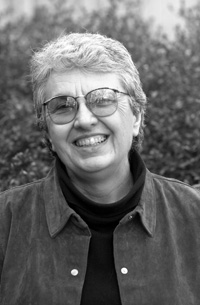Willard Pate - Furman Mentors
Back to main
 WILLARD PATE
WILLARD PATE
I arrived on the Furman campus in the fall of 1962, a naïve, unsophisticated freshman from a small town in Upstate South Carolina — a town so small, in fact, that my high school graduating class numbered only 64. Although I struggled at first with homesickness and feelings of inadequacy, I soon realized that Furman was the perfect choice for me. Now, some 45 years later, I am grateful every single day for the lessons I learned there, both in and out of the classroom.
Not only was Furman the right choice, but also my decision to major in English. As I made my way through the required courses and electives, I had the privilege of choosing among classes taught by master teachers whose names, both then and now, read like an honor roll of Furman greats — John Crabtree, James Stewart, Alfred Reid and Meta Gilpatrick among them. To all of them I am deeply indebted, but to none more so than a young, newly arrived professor who had in a short time made a name for herself as one of the English Department’s best, but also one of its toughest and, at times, most intimidating.
Knowing this, I bravely signed up for Willard Pate’s course in American Literature in the second semester of my junior year. Again, another wise decision. Not only did I learn about some of America’s greatest writers like Hemingway, Fitzgerald and, of course, Faulkner from yet another master teacher, but Pate also inspired me to learn more. Thus my decision to specialize in American Literature in graduate school.
It was also in this class that I learned to write, thanks to Pate’s insistence on clarity, conciseness, and unwavering focus on the topic at hand. I still have some of the papers I wrote for her in which she none too gently took aim at my faulty logic, imprecise diction, and use of words “just because they sound good.” These papers I treasure to this day, for although those corrections and comments — always in bright red ink — sometimes cut to the quick, they remain indelible evidence of Pate’s thoroughness, her love and respect for language, and her passion for its artistry and craft.
But it wasn’t just style that mattered to Pate; it was also substance. Yes, it was important to say it well, but you had to have something worth saying. Come to think of it, those words — “style and substance” — perfectly characterize not just her teaching, but Pate herself.
As is the case with most such extraordinary teachers, Pate’s influence on my life went well beyond the classroom. I shall always remember that her guidance and wisdom were ever present when, as an uncertain and overwhelmed graduate student, I was struggling to find my way. And still today, whenever I’m trying to make an important decision, I can hear her saying, “Know thyself.” Easier said than done, but her voice is always there, encouraging me to try.
Furman gave me many lifelong gifts, but chief among those was the life-changing experience of having Willard Pate as one of my teachers. In my own 30-year career as an English teacher, she was a constant source of inspiration as I strived to emulate her high standards, her devotion to teaching, and her love of the subject she taught. She was my teacher, my mentor, and my friend, and for that I shall be forever grateful.
— JEAN JACKSON ASHLEY ’66